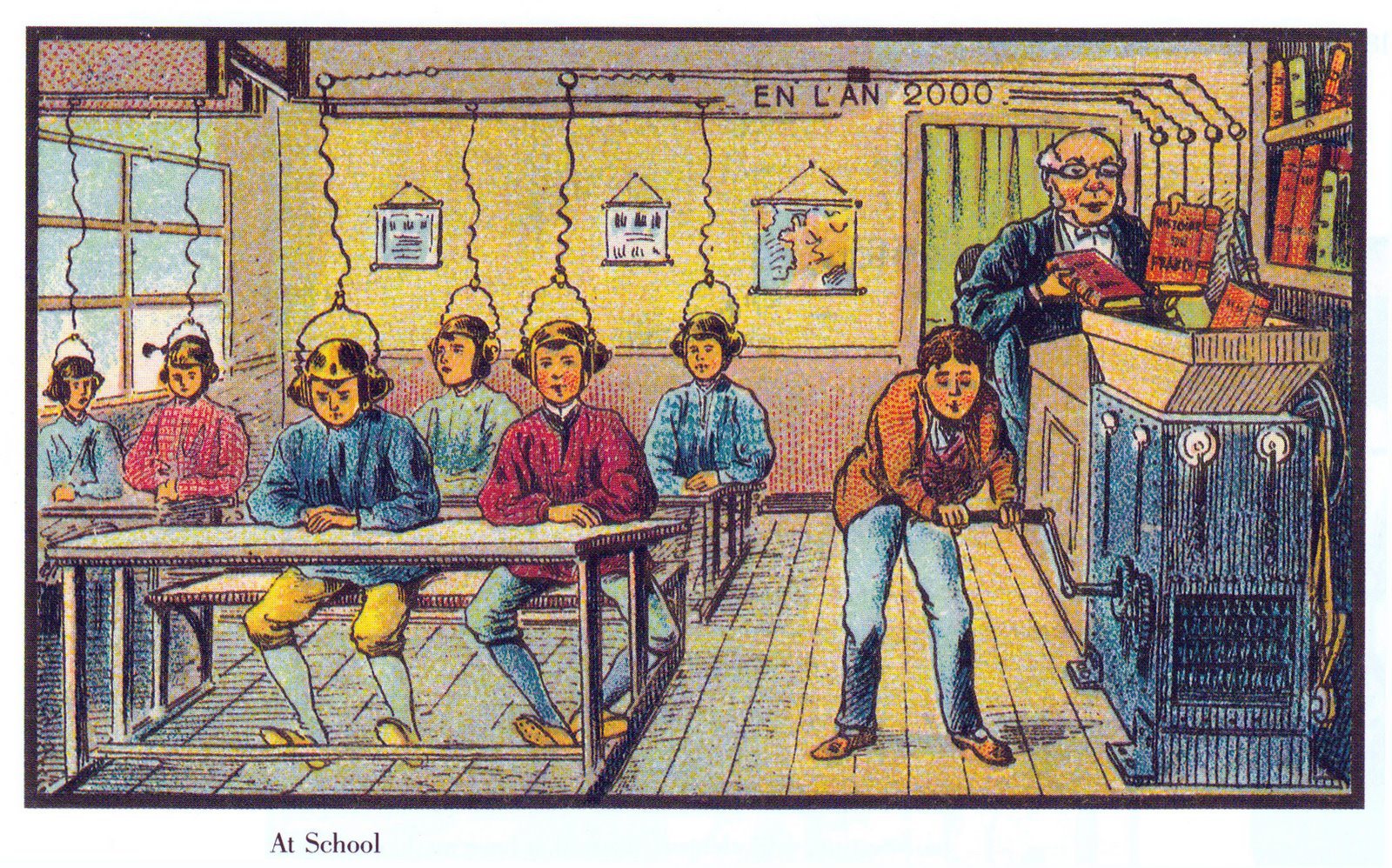The Atlantic published an article by Michael Godsey this morning entitled “The Deconstruction of the K-12 Teacher” – a real pot-stirrer for those of us who find ourselves trying to square how all of this data-driven driven, venture-capital-funded, business of edtech startups fits into the ramshackle behemoth of government-mandated curriculum, publicly demonized unions, and enduring inequity that is the education system. The article discusses the changing nature of teaching in a brave new world of flipped classrooms, personalized-learning apps, and high-quality instructional resources that are being shared (and sold) online for anyone. The problem with all this technology and access, it seems, is that it “marginalize[s] the teacher’s expertise.” Godsey predicts that in the next 10 to 20 years (some colleagues of his suggest it’s more like half of that, or 5 to 10 years), the quality of and access to educational tools and resources online will be so high that it will essentially eradicate the need for a teaching profession as we know it today. If Godsey’s prediction is correct (which I don’t think it is), I see two incredible tragedies resulting from this “brave new world” as he calls it. First, it would mean the loss of what many consider to be one of the most humanizing and noble occupations in our society. And second, it would mean that decades of reform efforts would have failed miserably in destabilizing our oft-criticized “factory model” of education. The former would be a tragedy for obvious reasons. The latter, however, is more complicated today, precisely for the points Godsey addresses.
Archive | March, 2015
MT @dmlresearchhub: Join us for #DMLcommons designed for #gradstudents, postdocs & early career professors http://t.co/5u7UVIn8Gp
— #ConnectedLearning (@TheCLAlliance) March 26, 2015
“Ten Indispensable Women Transforming Education” by @anya1anya https://t.co/5xLtWofuvq #nwp @keanuniversity #ccourses #dmlcommons #edchat
— Mia Zamora (@MiaZamoraPhD) March 26, 2015
Open invite to join us for another great Blog Talk webinar Mon. 10AM PT to help you get set up for #DMLcommons http://t.co/QxvJPpNDui
— Connected Learning Lab (@CLLab) March 26, 2015
RT @EduQuinn: Great advice for #dmlcommons folks from @wiobyrne on starting a blog. Much needed advice! #ccourses http://t.co/DwhzxjxZpB
— Connected Learning Lab (@CLLab) March 26, 2015
A Response to Godsey’s “Deconstructing the K-12 Teacher”
A Response to Godsey’s “Deconstructing the K-12 Teacher”
The Atlantic published an article by Michael Godsey this morning entitled “The Deconstruction of the K-12 Teacher” – a real pot-stirrer for those of us who find ourselves trying to square how all of this data-driven driven, venture-capital-funded, business of edtech startups fits into the ramshackle behemoth of government-mandated curriculum, publicly demonized unions, and enduring inequity that is the education system. The article discusses the changing nature of teaching in a brave new world of flipped classrooms, personalized-learning apps, and high-quality instructional resources that are being shared (and sold) online for anyone. The problem with all this technology and access, it seems, is that it “marginalize[s] the teacher’s expertise.” Godsey predicts that in the next 10 to 20 years (some colleagues of his suggest it’s more like half of that, or 5 to 10 years), the quality of and access to educational tools and resources online will be so high that it will essentially eradicate the need for a teaching profession as we know it today. If Godsey’s prediction is correct (which I don’t think it is), I see two incredible tragedies resulting from this “brave new world” as he calls it. First, it would mean the loss of what many consider to be one of the most humanizing and noble occupations in our society. And second, it would mean that decades of reform efforts would have failed miserably in destabilizing our oft-criticized “factory model” of education. The former would be a tragedy for obvious reasons. The latter, however, is more complicated today, precisely for the points Godsey addresses.


